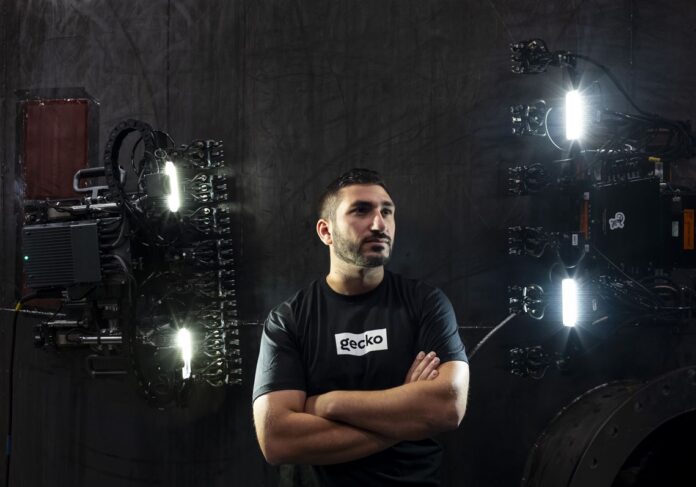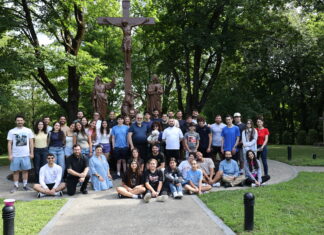By Evan Robinson-Johnson
PITTSBURGH, Penn. (Pittsburgh Post-Gazette) — Rear Admiral Scott Pappano came to Gecko Robotics’ North Side headquarters with a billion-dollar problem: The US Navy needed a faster way to build submarines.
Its first Columbia class submarine was supposed to be ocean ready by 2027 as part of a $132 billion replacement plan, and critics were already warning that the timing and scope were unrealistic.
As it turned out, Gecko’s dexterous robots — which generate millions of data points as they traverse industrial equipment checking for cracks, corrosion and other damage — could offer just the solution. The ultrasonic bots were already inspecting Naval warships that had seen years of use. Gecko CEO Jake Loosararian argued they could be just as useful on the construction side, saving manufacturing costs while establishing data that could be referenced in future maintenance cycles.
“This is a critical asset that’s going to be defending our nation. It is so important to understand what the manufacturing looks like at the beginning to ensure that taxpayer dollars are actually getting a quality outcome,” he said.
In a matter of months, Gecko landed a demonstration contract to put its system to the test. The company would not say how much the contract — essentially a proof of concept — was worth. The Department of Defense only reports contracts over $7.5 million.








